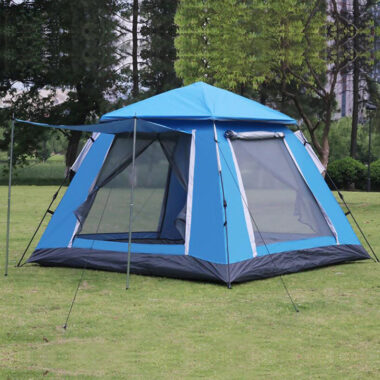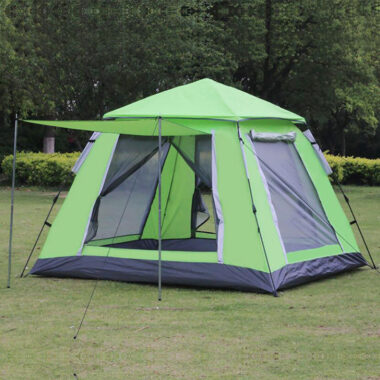1️⃣ Understanding What Makes a Reliable Manufacturer
Choosing a camping tent manufacturer is one of the most critical steps in your outdoor product sourcing process.
A reliable partner provides consistent quality, flexible customization, and transparent communication from design to shipment.
Look for factories that have clear OEM/ODM experience, understand outdoor standards (like waterproof ratings, wind resistance, and flame retardancy), and can show actual production lines — not just trade offices.
Professional manufacturers are willing to share factory videos, certifications, and QC reports.
A trustworthy supplier also gives realistic lead times and keeps you updated during every stage — from sampling to loading.
2️⃣ Evaluate the Factory’s Production Capabilities
Before confirming cooperation, it’s essential to understand a factory’s equipment scale and production capacity.
A genuine tent factory should have:
automatic cutting and coating machines,
seam-taping and waterproof-testing lines,
organized sewing workshops,
and experienced QA inspectors on the floor.
These features ensure your custom camping tents meet both aesthetic and functional standards.
Factories using advanced technology can achieve stable stitching, reduced material waste, and faster output — all crucial when handling large wholesale or seasonal orders.
3️⃣ Customization Options for Brand Identity
For brands, outdoor retailers, or event organizers, customization is key.
A professional tent factory doesn’t just copy an existing model; it helps you create your own branded product.
Custom options may include:
choosing between nylon, polyester, or canvas fabrics,
adjusting tent size (1–2 P, 3–4 P, or family),
printing your logo or pattern,
and designing retail packaging with barcodes and manuals.
When evaluating a potential supplier, ask for sample turnaround time, customization limits, and minimum order quantity (MOQ).
A flexible manufacturer can offer small-batch OEM services while maintaining quality consistency.
4️⃣ Quality Control and Material Testing
Outdoor tents are exposed to tough environments — rain, wind, UV light, and temperature changes.
That’s why a dependable tent manufacturer must have rigorous QC systems.
They should test materials for:
hydrostatic head (waterproof level),
UV protection,
tear resistance, and
seam durability.
Ask for real test results, not just claims.
A factory with proper quality control saves you time and cost in the long term by preventing returns and reputation issues.
5️⃣ Lead Time, Communication, and After-Sales Support
Even the best product fails if delivery is delayed.
Good factories maintain clear production schedules and handle export logistics smoothly.
Ask about:
lead time for prototypes and bulk orders,
export experience to your region,
and their response time during production.
Reliable suppliers will also provide after-sales support — addressing potential quality feedback, spare parts, or additional packaging needs.
Long-term cooperation builds trust and efficiency for both sides.
6️⃣ Final Thoughts: Building Long-Term Partnerships
Finding the right camping tent manufacturer isn’t about one-time pricing — it’s about forming a strategic partnership.
Choose a factory that values transparency, provides real-world solutions, and supports your business growth through stable supply and quality assurance.
When you find a manufacturer that balances cost, quality, customization, and reliability, you gain not just a vendor, but a long-term partner who grows with your brand in the global outdoor market.








